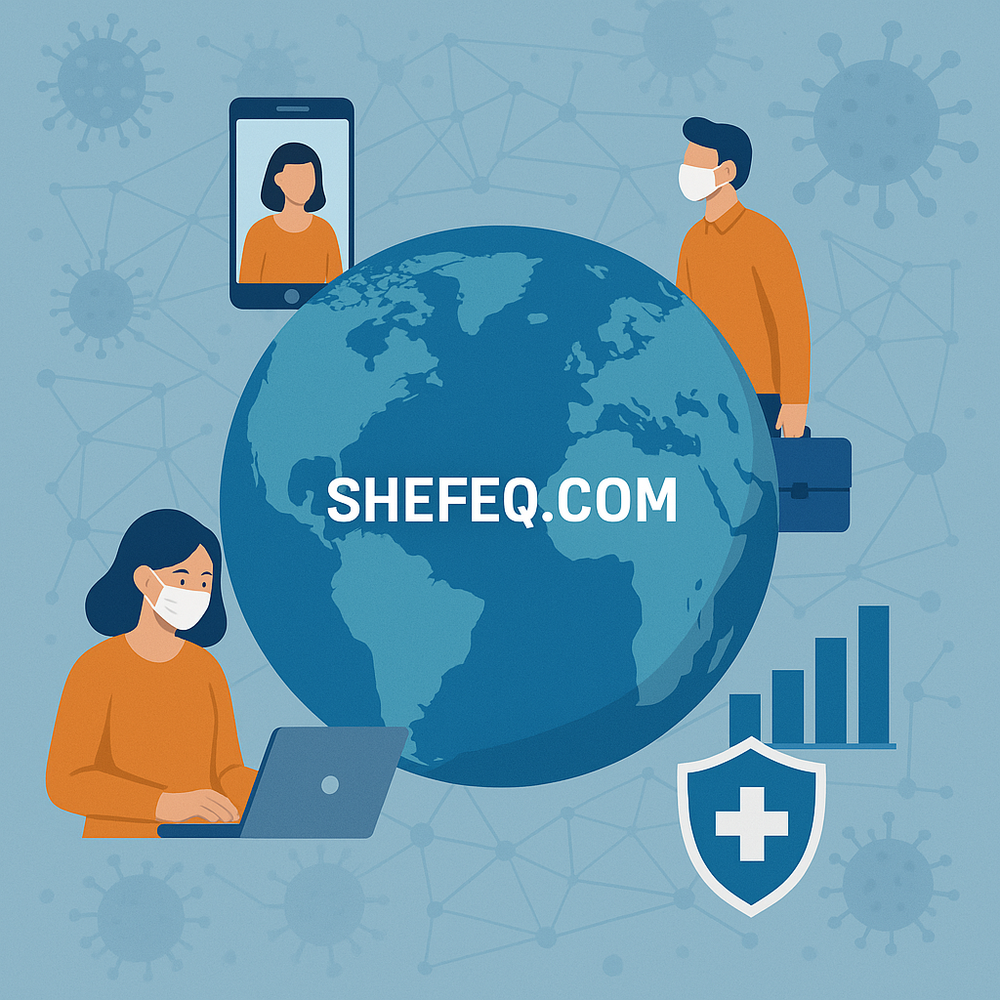Introduction
The 2020 COVID‑19 pandemic marked a turning point in world history. It shook not only healthcare but also social life, the economy, education, technology, and international relations. After the pandemic, the concept of “normal” no longer fit the same mold. Societies, nations, and individuals all had to adapt to new realities. The term “new normal” entered everyday life. But what exactly is this “new normal,” and how is the post‑pandemic world taking shape?
I. Healthcare as a Priority & System Reforms
The pandemic exposed how fragile and underprepared healthcare systems were. Now, many countries treat healthcare as a matter of national security. The “new normal” brings:
-
Major investments in hospital infrastructure, workforce training, and medical tech
-
Telemedicine boom—diagnostics and treatments move online
-
Real-time epidemiological monitoring to detect and prevent outbreaks
-
Pharma shift—streamlined vaccine and drug development processes
II. Accelerated Digital Revolution
Life’s move into the digital realm became nearly complete. Key developments include:
-
Education shift—online learning is now a primary, not alternative, format; hybrid models are widespread
-
Digital literacy has become crucial for job readiness
-
Cybersecurity—increased online activity has escalated data risk
-
AI & automation—tech is taking over more tasks across industries
III. New Realities in the Labor Market
Remote work became mainstream, changing the workforce landscape:
-
Remote & hybrid work models are here to stay for many companies
-
Collaboration tools like Slack, Zoom, and Teams are essential
-
Well-being focus—workers’ mental and social support matters more
-
Flexible hours with enhanced autonomy and responsibility
IV. Social Behavior & Psychological Shifts
Pandemic experiences translated into new social and mental patterns:
-
Social distancing & hygiene habits are now ingrained
-
Isolation challenges—depression and anxiety rose during lockdowns
-
Value shifts—family, health, and security became top priorities
-
Online socializing replaced many in-person interactions
V. Global Economic Transformation
Pandemic-induced disruption prompted economic overhaul:
-
Onshoring production for strategic resilience
-
E-commerce surge—Amazon, Alibaba, and others saw record growth
-
Digital payments & crypto adoption accelerated
-
Green recovery initiatives integrated sustainability
-
Environmental awareness gained momentum during the slowdown
VI. New Approaches in International Relations
Global diplomacy and cooperation were reshaped:
-
Vaccine diplomacy became a key foreign policy tool
-
UN/WHO scrutiny—their roles in pandemic response were closely evaluated
-
Regional alliances gained importance over global frameworks
-
Border tightening reflected a shift toward national-first policies
VII. Environmental Impact & Sustainability
The pause in industrial activity had lasting environmental lessons:
-
Carbon emissions fell, improving air and water quality temporarily
-
Green stimulus programs tied revitalization to sustainability
-
Renewable energy focus strengthened post-pandemic
-
Eco-awareness—public attention to nature’s role grew
VIII. Revolutionary Changes in Education
Education evolved into a hybrid, digital-integrated system:
-
Hybrid learning—combining online and offline modes
-
EdTech investment increased significantly
-
Tech fluency became essential for educators and students
-
Digital divide—unequal access to tech highlighted educational gaps
IX. Digitalization in Governance
Public administration moved online and became more responsive:
-
E‑government services—permit and documentation processes went digital
-
Smart city initiatives account for health and distancing standards
-
Real‑time citizen feedback improves government transparency
-
Legal frameworks were updated to manage emergencies & quarantine
X. New Values & Future Outlook
The pandemic shifted collective mindsets:
-
Health tops priorities—physical and mental well-being matter most
-
Solidarity & empathy grew during global crisis
-
Happiness is local—inner fulfillment became more valued than materialism
-
Family bonds strengthened under isolation pressures
Conclusion
The post‑pandemic world doesn’t mirror the old one. The “new normal” signifies a lasting transformation in life norms, technologies, work models, and social values. Individuals, societies, and governments must remain flexible, tech-savvy, and socially responsible. This emerging normal is both a challenge and an opportunity.
If we rise to these challenges, the pandemic may ultimately be seen not just as a tragedy, but as a stepping-stone to a more equitable, sustainable, and enlightened future.

